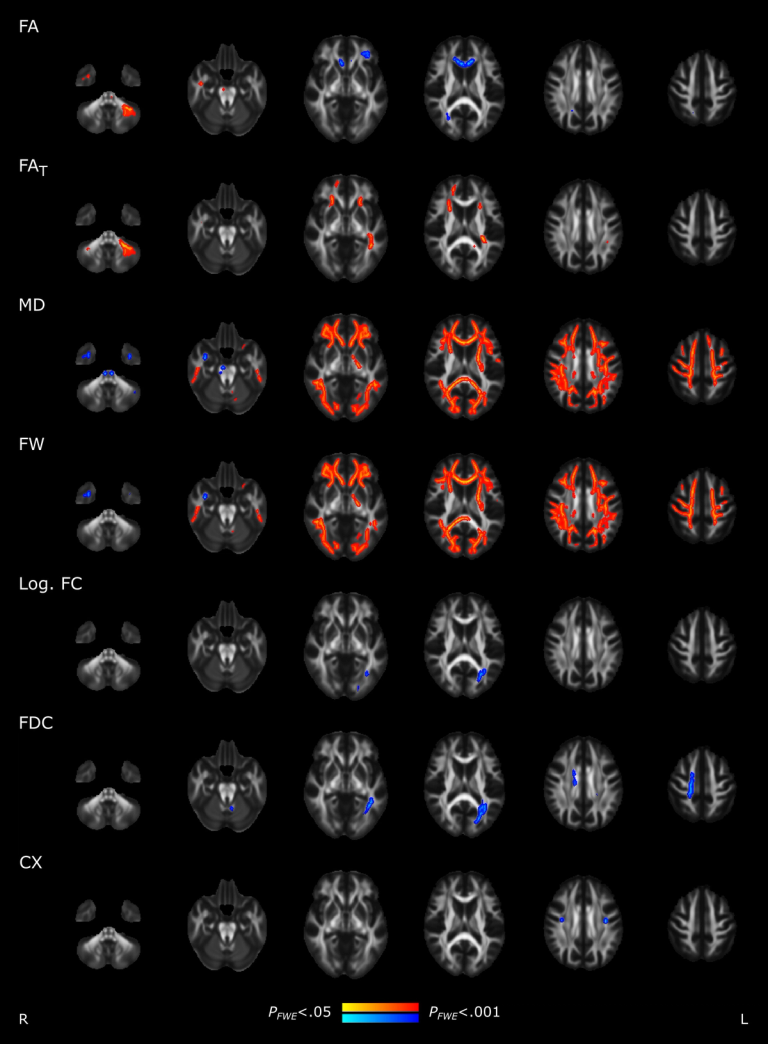ABSTRACT
As severe acute respiratory syndrome coronavirus type 2 (SARS-CoV-2) infections have been shown to affect the central nervous system, the investigation of associated alterations of brain structure and neuropsychological sequelae is crucial to help address future health care needs. Therefore, we performed a comprehensive neuroimaging and neuropsychological assessment of 223 nonvaccinated individuals recovered from a mild to moderate SARS-CoV-2 infection (100 female/123 male, age [years], mean ± SD, 55.54 ± 7.07; median 9.7 mo after infection) in comparison with 223 matched controls (93 female/130 male, 55.74 ± 6.60) within the framework of the Hamburg City Health Study. Primary study outcomes were advanced diffusion MRI measures of white matter microstructure, cortical thickness, white matter hyperintensity load, and neuropsychological test scores. Among all 11 MRI markers tested, significant differences were found in global measures of mean diffusivity (MD) and extracellular free water which were elevated in the white matter of post-SARS-CoV-2 individuals compared to matched controls (free water: 0.148 ± 0.018 vs. 0.142 ± 0.017, P < 0.001; MD [10−3 mm2/s]: 0.747 ± 0.021 vs. 0.740 ± 0.020, P < 0.001). Group classification accuracy based on diffusion imaging markers was up to 80%. Neuropsychological test scores did not significantly differ between groups. Collectively, our findings suggest that subtle changes in white matter extracellular water content last beyond the acute infection with SARS-CoV-2. However, in our sample, a mild to moderate SARS-CoV-2 infection was not associated with neuropsychological deficits, significant changes in cortical structure, or vascular lesions several months after recovery. External validation of our findings and longitudinal follow-up investigations are needed.

